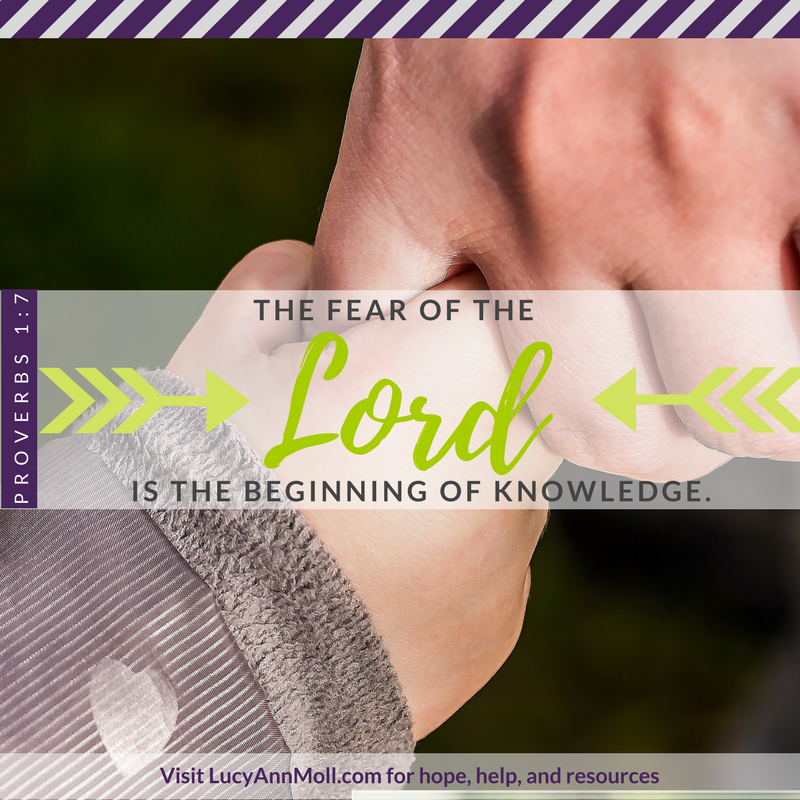
by Lucy | Feb 22, 2018 | biblical counseling, emotions
Loneliness plagues everyone at some point in their lives. So the real question is, how can you help the lonely? And if you are among the lonely, how can you find hope? This article by Anne Dryburgh appeared first here at the Biblical Counseling Coalition website and it used by permission.

Loneliness is an emotionally painful sense of not being connected to others. The lonely person may feel unwanted, isolated, and left out.”[1]
Feelings of loneliness are often the result of living in fear, being isolated, lacking an emotional connection with others, a lack of intimacy with God, or feeling rejected by someone significant. All of us will experience some level of loneliness at some point in our lives.
The people who are most likely to experience the biting pain of loneliness include those who are facing grief, marital problems and/or divorce, chronic illness, unfamiliar surroundings or culture, or children who are growing up in a difficult home.
Loneliness in the Bible
There are many lonely people in the Bible.
Elijah: In 1 Kings 19:10, Elijah was in a state of great distress. He believed that he was alone in serving the Lord.
David: David’s soul waited in silence for God alone (Ps. 62:5). There was no other person who took notice of him, or took care of his soul (Ps. 142:4).
Asaph: He had no one on earth or in heaven besides God (Ps. 73:25, 26).
Paul: Demas, Crescens, and Titus abandoned Paul. It was only the Lord who stood by him during his first trial (2 Tim. 4:10, 16-17).
Jesus: Those closest to Jesus deserted him (Mark 14:50); Peter denied him (John 18:15-18; 25-27), and Judas betrayed him (Matt. 26:47-50). Jesus suffered alone in the Garden of Gethsemane (Matt. 26:36-46), and was forsaken by the Father when he hung on the cross (Matt. 27:46).[2]
Intimacy with the Lord
As we have read, the Bible speaks about loneliness, but the Lord ministers powerfully to the lonely. He has promised believers throughout the ages that he will not leave them nor forsake them, but will always be with them (Ps. 139:7-12; Isaiah 41:10; Matt. 28:20; Heb. 13:5).[3]
God calls himself a husband to his people, and compares his people to a “wife deserted and grieved in spirit, as a wife of youth when she is cast off” (Isa. 54:5, 6). We read in Hosea that God’s people were betrothed to Him in righteousness, justice, steadfast love, mercy, and faithfulness (Hos. 2:19, 20).
In the New Testament, believers are described as the bride of Christ (Eph. 5:31, 32; Rev. 21:2). This speaks of a deep intimacy of the soul, which is greater than that which human beings can experience with each other.
Providing Support
Someone who is suffering loneliness will have the tendency to be focused on themselves; what they want and what they don’t have. When supporting the lonely person, you will need to discover what they are thinking and how they spend their time.
Are they looking at what other people are doing on social media and feeling sad because they do not have nice date nights, beautiful vacations, or fun evenings with friends? Are they watching films or programs and wishing that they were somewhere else, with other people, or had something that they don’t have at present? These thoughts can quickly progress to thinking that nobody loves them and that their lives are a waste.
What is the truth about the Lord and their situation? What are some ways they can use their time more constructively; what would be a more edifying use of time than social media? Learning about God’s providence can help them discover that the Lord is actively at work in their circumstances for his purpose and glory.
Trusting this truth and living for his glory in the midst of their difficulty can turn painful loneliness into a time of experiencing the glory of the Lord.
Importance of Community
It is important to help them come out of isolation and begin establishing relationships with other people as much as possible. Even if the person would rather stay at home, it is essential that they take steps to be with others and to seek to take an interest in what is happening around them.
The church can look for ways to care for those who are lonely by visiting or providing practical support. For example, creating connections for teens by building relationships across generations can help the lonely teen grow in their faith while living through difficult situations.
Sometimes, people who have lived in a state of loneliness for a long time will become very needy and want to hold onto any form of sincere love that they experience. Encouraging the lonely to pursue intimacy with the Lord and to seek to love others will help prevent them from developing an unhealthy dependency on those who reach out to them. In this way, genuine community and fellowship can develop.
Conclusion
Loneliness is painful, and all of us will experience it at some point in our lives.
Thankfully, the Lord speaks into our loneliness and ministers to us in a deeply meaningful way. When supporting the lonely, discover what they are saying to themselves and how they got to that stage. Help them focus their hearts on the providential God who is working out his glorious purpose in and through their situation. When they focus on loving others, they will emerge from their isolation and become a source of blessing.
Questions for Reflection
- As you think about the most lonely times in your life, how did the Lord minister to you?
- How did scripture speak deeply into your soul at that time, and how did that impact your life?
- Do you know someone who is lonely? How can you encourage and bless them?
[1]Mary Somerville. “Coping with Loneliness.” National Association of Nouthetic Counselors, Annual Conference, 2005, mp3.
[2]Ibid., Wayne Mack, “Loneliness & Self-Pity#1: How to Handle Loneliness,” The Dr. Wayne Mack Library. CDWM4191.
[3] Mary Somerville, “Coping with Loneliness,” National Association of Nouthetic Counselors; Caroline Newheiser, “Helping Women who are Married but Lonely,” The Institute for Biblical Counseling and Discipleship.
About the author: Anne is an IABC and ACBC certified biblical counselor who has been a mission worker in Flemish-speaking Belgium since the early 1990s. She is also a guest lecturer at Tilsley College in Scotland, an external reader for doctoral candidates at the Masters International University of Divinity, an author, a frequent contributor to the blog Biblical Counseling for Women, and coordinates the European hub of the Biblical Counseling Coalition.
Counseling Hope to Your Heart,

by Lucy | Nov 14, 2017 | biblical counseling, emotions, relationships
 To win the war for your child’s heart, you’ll fight three forces. But first, you must recognize you’re in a war!
To win the war for your child’s heart, you’ll fight three forces. But first, you must recognize you’re in a war!
Winning the war requires you to focus on your child’s heart!
Read the part 1 here and part two here in the Best Mom Ever series, teaching you to–
1. Prepare!
2. Recognize you’re in a war.
3. Assume your role as a benevolent dictator.
4. Yield to God.
This post calls you to fight once you recognize you are in a war, a war you must win, God willing. . .and he is willing.
3 Battle Forces!
In this battle, you face three strong forces:
First, your child’s natural, selfish nature.
Second, a spiritual undertow.
For our struggle is not against flesh and blood, but against the rulers, against the authorities, against the powers of this dark world and against the spiritual forces of evil in the heavenly realms. Ephesians 6:12
And third, our increasingly wacked-out, confusing, chaotic culture.
Our culture says the best kids are happy and successful kids. This is a lie. The best kids are not the ones who seem happy and successful, who look good on the outside. Rather, the best kids are GOD-honoring KIDS.
Ground Zero: The Heart
As I’ve mentioned, your Number One goal is to shepherd your child’s heart. Scripture teaches that the heart is the control center for life. A person’s life is a reflection of the heart.
Proverbs 4:23 puts it this way:
Above all else, guard your heart, for it is the wellspring of life.
From the heart flows your behavior. What you say and do and think expresses your heart. That goes for your child, too.
So when your child misbehaves, he is revealing his selfish nature, his battle-weary soul, or his bent toward a sin-city culture.
OR ALL THREE!
You may be thinking, “No, not my little Ethan, not my little Emma.” The truth is, every child is selfish and foolish.
The heart is deceitful above all things
and beyond cure.
Who can understand it? Jeremiah 17:9
Even kids who are believers in the Lord Jesus Christ miss the mark, as do their parents.
We all mess up. Our intentions may be good but, well, our own desire to please our little darlings can get the best of us. Here’s one of my many “what-were-we-thinking?” stories.
What Were We Thinking?
Laura was about 2.
And sneaky.
She knew my weak spot.
At bedtime after I laid her in her crib with five — yes, five — pacifiers — I said a sweet good night, gave her an equally sweet kiss on her chubby cheek, and tip-toed out the door.
By the time I made it down the stairs, I heard:
CLUNK. . .CLUNK. . .CLUNK!
Three pluggies down. Two to go.
CLUNK. . .CLUNK!
Yes, my sweet, sweet Laura had a good arm. She had whipped her pluggies at the door, knowing I’d come back. She was barely 2 and she was telling us who was in charge. And what was I thinking? Doesn’t scripture say kids must obey their parents? Yes, it’s right there in black and white.
Children, obey your parents in the Lord, for this is right. Ephesians 6:1
Winning Your Child’s Heart
We were in a war. And so are you, Mom. The only way to win: Look past my child’s behavior and see what was going on in her heart. To win the battle for her heart, my husband and I needed to show that, with God’s help, we were in charge.
God gave us the job of effecting godly attitudes, behavior, and character in our adorable child. In the next post, we’ll look at assuming your role as a benevolent dictator. 🙂
Let’s Talk
- What behavior problems do you see in your child?
- What have you done about them?
- How does focusing on the heart help your child glorfy God?
Be sure to read the next post on assuming the rightful role as the mom. To make sure you get it in your email, subscribe to blog. The subscription box is below.
Counseling heart to hope (and heal!)


by Lucy | Nov 9, 2017 | biblical counseling, emotions, relationships |
 Preparation is a first step in becoming the best mom ever. God shows you the way. He guides your steps.
Preparation is a first step in becoming the best mom ever. God shows you the way. He guides your steps.
Becoming the best mom ever is within your reach. This doesn’t demand perfection. Not at all. If it did, we’d all fail! But it may require a shift in your approach as you. . .
Read the first post in my “Becoming the Best Mom Ever” series. There are four more to come. 🙂
First P.R.A.Y.
To become the best mom ever who shepherds her child’s heart, you need to:
1. Prepare!
2. Recognize you’re in a war.
3. Assume your role as a benevolent dictator.
4. Yield to God.
P Is Preparation!
My preparation for motherhood lasted nine months, but my labor was a different sort: paperwork! Nine months is EXACTLY how long it took from from finishing adoption paperwork until precious, newborn Laura snuggled in our arms.So far, so good. Right?
But when Laura turned 3 weeks old, she screamed out of no where. I checked her diaper. Nothing. I offered her her bottle. Not interested. I gently bounced her. She screamed louder. When she finally fell asleep, I read every book I could get my hands on.
The diagnosis: Colick!
Four months later she outgrew this stage, and I learned the value of preparation, big time. I began reading AHEAD to the next stage of child development so I could handle it better.
Preparation doesn’t solve every parenting dilemma but it helps immensely. Your two most important preparation tools: knowledge and wisdom.
Getting Knowledge and Wisdom
King Solomon wrote in Proverbs,
The fear of the Lord is the beginning of knowledge; fools despise wisdom and instruction. Proverbs 1:7
You’ll find knowledge and wisdom in the pages of Scripture. So read the Bible, soak in the truth, pay attention to the moms and dads in the Bible, what they did right, and what they did wrong. This prepares you for shepherding your child’s heart.
You can get wisdom from other sources too, such as parenting books from Ted Tripp and Lou Priolo. I highly recommend these five books:
 Shepherding a Child’s Heart
Shepherding a Child’s Heart
Instructing a Child’s Heart
The Heart of Anger
Getting a Grip (for teens)
I use these books often in counseling hope to moms (in person and by Skype). Plus, another helpful tool I incorporate in counseling is this Thought Journal..
Around the time I inhaled Tripp’s and Piolo’s books, I was facing backtalk from my eldest and craziness other kinds from my two youngest. The middle child argued. And the youngest whined! (And I’m a biblical counselor, for crying out loud. . .I was crying!)
It’s little wonder I prayed and prepared, and prepared and prayed, and read parenting books more times than I care to admit. Now my children are adults. We survived! If I can, you can. We moms must stick together, right?
Click & Tweet!
My next post in this series at my website centers on recognizing that you’re in a war.
Join the Conversation
How have you prepared to shepherd your child’s heart? What help do you need?
Counseling Heart to Hope (and Healing!)

. . .
by Lucy | Sep 26, 2017 | biblical counseling, emotions, whole health wellness
 What if…your worst fear actually comes to pass? Then what? Listed in our Heart2Heart Counselor Directory, biblical counselor Suzanne Holland gives real answers to scary questions and provides hope. Suzanne is a premier counselor. Her article appeared first here at BC4Women.org and is used with permission.
What if…your worst fear actually comes to pass? Then what? Listed in our Heart2Heart Counselor Directory, biblical counselor Suzanne Holland gives real answers to scary questions and provides hope. Suzanne is a premier counselor. Her article appeared first here at BC4Women.org and is used with permission.

“What if it’s cancer? How will we deal with that? I don’t want to leave my husband and children alone!”
“Or what if my car breaks down? I barely have enough money to cover my expenses! How will I get to work?
“And what if the pain gets worse? How will I cope with it? How will I function?”
All of these are legitimate questions asked by believers who are struggling to deal with a circumstance or eventuality that they feel ill-equipped for. There are so many things that can happen in this fallen world we live in. Many of them are pretty frightening.
As I read in Daniel 3 about Shadrach, Meshach, and Abednego, I felt certain that they were frightened of that furnace. Who wouldn’t be? Nebuchadnezzar had erected a gold statue and commanded all people to bow to it. These three young men knew they could not do that.
I can imagine what their conversation was like, as it became clear that their allegiance to the One True God would stir up the wrath of this powerful king. Maybe, they asked one another,
- What if we can’t stand our ground?
- What if we lose our nerve?
- And if we do remain steadfast, how will we endure the furnace?
- Where will we get the courage to finish well?
I don’t know for sure if this conversation or one like it took place. However, I am pretty sure it would if it were me and my friends! I would be afraid and anxious about it for sure, at least in my own strength. But these three young men clearly were not counting on their own strength to see them through. They were depending on their God. When they appeared before the king, they spoke these words:
O Nebuchadnezzar, we do not need to defend ourselves before you.
If we are thrown into the blazing furnace, the God whom we serve is able to save us. He will rescue us from your power, Your Majesty.
But even if he doesn’t, we want to make it clear to you, Your Majesty, that we will never serve your gods or worship the gold statue you have set up. (Daniel 3:16-18)
3 Crucial Convictions in Your “What If”
They express three important convictions in this passage. And we need to keep in mind as we face the “what ifs” of our lives.
1. Remember God Alone Has Ultimate Power
First, they express the fact that the king has no real power over them. In saying, “we don’t need to defend ourselves before you,” they are saying that he is not a threat. They know that the God they serve is far more powerful, and He will be their defender. They let the king know that they have complete confidence in God’s ability to save them out of that fire.
2. Know God Will Deliver You
Second, by fearlessly admitting the possibility that He may not save them in an earthly sense, they are letting the king know that they don’t fear death. Since they worship a God who is the master of eternity, they have a great hope of what lies on the other side of that furnace, should they perish there. In other words, they are telling him that, whether they live or whether they die, their God will deliver them from his hand.
3. God Alone Is Worthy of Worship
Finally, Shadrach, Meshach, and Abednego make it very clear to the king that nothing he does can ever make them worship any other god. No matter what he threatens, no matter how painful the consequence, they absolutely will not become idolaters.
Answers to Scary Questions
So, what’s the takeaway for us? How can we apply this passage to our what-ifs? Well, I would like to suggest that, instead of saying what-if-this or what-if-that, let’s change it up. Let’s replace “what if” with “even if.”
“Even if it’s cancer, I know that my God can rescue me from it. He can heal me of this cancer, but even if He doesn’t, He will deliver me. We will bring me to heaven, where there will be no more pain or suffering. I am trusting in Him. And I refuse to make restored health an idol. God has cared for my family all this time, and He will continue to do so, with or without me. I refuse to give in to worry.”
“Even if my car breaks down, I will not give into fear or panic. Jesus said that God cares so much for me that He has numbered every hair on my head. It is He who has provided for me up until now. Why should that change? I refuse to give in to fear.”
“Even if the pain gets worse, I will recognize that circumstances will always be changing, but my God never does. He is faithful no matter the severity of my pain or disability. Even if I can’t do the things I’ve always done, He will provide the help that I need. Or, He’ll remove the necessity of the task. I refuse to give in to panic about my pain.”
Think About It
What are the “what-ifs” of your life today, friend?
Click & Tweet!
Are you fearful or worried about the future? Remember that fear can lead to idolatry if we do not take it captive. Bring those fears to the Lord, remembering His faithfulness and love. Then, proclaim to everyone you know the truth about your great God. Let them see that you will not bow down to the idols of worry and fear about earthly things.
As you go through the fiery trial, let them see Jesus going through it with you, just as King Nebuchadnezzar saw four men walking around in the fire when He had thrown in only three. That same confidence that led them through their fire will lead you through yours.
Even if…
Resources from Lucy
You may like this article:
Biblical Approach for Healing PTSD
Or this easy-to-download eBook:
Fit for Life: A Biblical Guide to Getting Fit (and Losing Weight)
Need prayer or want a free biblical counseling consultation by phone? Send me a secure message here.
Counseling Hope to Your Heart,

by Lucy | Sep 5, 2017 | biblical counseling, emotions, whole health wellness
God declares overeating to be a sin: ‘For the heavy drinker and the glutton will come to poverty’ (Proverbs 23:21).
So begins the second chapter of biblical counselor Shannon Kay McCoy’s very helpful mini-book HELP! I’m a Slave to Food.
Then McCoy defines sin. These definitions include–
- whatever is not from faith is sin (Romans 14:23).
- therefore, to one who knows the right thing to do and does not do it, to him it is sin (James 4:17).
- all unrighteousness is sin (1 John 5:17).
- sin is lawlessness (1 John 3:4).
These descriptions view sin as the act of the will. Sin is choosing to act in opposition to God’s Word.
Sin of Overeating?
McCoy continues: “Perhaps you don’t believe that overeating is a sin. Many of us have been brainwashed by magazine articles, television talk shows, and reality shows that tell us that food is the problem: you are simply eating the wrong things in the wrong way.”
Often Christians view overeating as a diet problem rather than a sin problem.
Click & Tweet!
But overeating does n
ot seem serious. We often treat it as one of those ‘little sins’ that are acceptable in the church.
You don’t hear sermons or read books on the sin of overeating, do you? Your focus is more on getting treatment for your problem of overeating than facing up to your personal responsibility of repentance and obedience.
As McCoy pointed out, overeating is failing to do the right thing. It is unrighteousness and lawlessness.
Description of a Food Struggle
A woman McCoy spoke with describes her struggle:
My eating was out of control. I ate solely to satisfy whatever craving I was having at the time. As a result, my health was suffering and I was not honoring God with my life and body He had given me. I was for the first time confronted with the fact that the way that I was eating was sinful. I knew that my eating was ‘not good,’ but I never considered that my eating was sin.
In her mini-book, Shannon transparently identifies with her readers by acknowledging that overeating once dominated her life. Then she shares the life-changing counsel from the Scriptures, which changed her life, beginning with admitting the seriousness of her sin problem.
Overeating Is Not an Addiction
Some overeaters label themselves “food addicts,” believing they are addicted to food. However, addiction is not a biblical term. The world uses this terminology to describe the behavior of someone who is controlled by a substance.
The Merriam-Webster dictionary defines addiction in this way: “To devote or surrender (oneself) to something habitually or obsessively.” But the danger in labeling overeating as “addiction” is that it undermines the personal conviction of sin. If the problem is not sin, then you will look for solutions in a system of theories, not in the person of Jesus Christ.
Overeating Is Idolatry
The biblical term for “addiction” is “idolatry.” The sin of overeating is idolatry. And idolatry is worship and devotion to creation rather than worship and devotion to the Creator God.
You worship your stomach and appetites by indulging in food. In fact, you desire the created food more than your Creator. The problem is not necessarily the food you consume; it is the worship of your heart. But before you can be set free, you must acknowledge your idol, denounce it, repent, and give your heart and devotion to him. Your greatest hope is in turning from your false gods and surrendering your life to Jesus, who forgives your sins and frees you from the sin of overeating.
God’s Grace Empowers Us to Change
Romans 6:12-14 both exhorts us to repent of the sin of overeating and gives us hope on God’s power to change us:
Therefore do not let sin reign in your mortal body so that you obey its lusts, and do not go on presenting the members of your body to sin as instruments of unrighteousness; but present yourselves to God as those alive from the dead, and your members as instruments of righteousness to God. For sin shall not be master over you, for you are not under law but under grace.
In the remainder of her mini-book, McCoy teaches us how to conquer the sin of overeating by God’s gracious empowerment for disciplined living.
Get HELP! I’m a Slave to Food in print copy and/or Kindle format.
RESOURCE: Looking for a whole-hearted, comprehensive ebook to be Fit for Life. Get it now.
Sharing Hope with Your Heart,






 To win the war for your child’s heart, you’ll fight three forces. But first, you must recognize you’re in a war!
To win the war for your child’s heart, you’ll fight three forces. But first, you must recognize you’re in a war! Preparation is a first step in becoming the best mom ever. God shows you the way. He guides your steps.
Preparation is a first step in becoming the best mom ever. God shows you the way. He guides your steps. Shepherding a Child’s Heart
Shepherding a Child’s Heart What if…your worst fear actually comes to pass? Then what?
What if…your worst fear actually comes to pass? Then what?
 Food is a gift from God, right? But for some people, overeating is a. . .sin.
Food is a gift from God, right? But for some people, overeating is a. . .sin.

